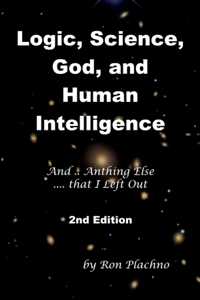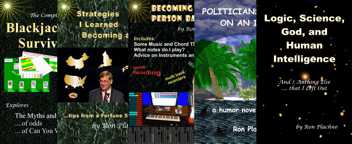| |
DETERMINING TRUTH
Mostly a Direct Excerpt from the Book:
There of course is no sure way to tell if
something is true or if someone is telling the truth. We are even
told that lie detector tests are some times not conclusive. However,
there are a few things that should make us more alert when we hear
them. Should we listen to others? Absolutely I believe. That is how
we learn and at times even receive needed warnings. However,
deciding later whether what we heard is true or not is important.
EXTREMES Should be a Warning
In my own
experience, if what we hear deals in extremes, it would give me a
caution flag on whether it is true or not. I find that the world we
live in is seldom extreme, but much more often, a combination of
good things and not so good things. Some examples that I have found
in my own life:
-
There are no races of
humans that are all good or bad. There are also none where
everyone in that race is evil or is always a victim.
-
There are no
countries, no nationalities that I see as being all good or bad.
-
There are no groups,
no political parties, no religions, where everyone in it is all
good or all bad.
-
Even an individual,
including you and me, have good points and bad points. There is
no such thing as a human being to my knowledge who always does
everything good or bad.
The above should be
obvious since most of us know that racism is wrong – thinking that
everyone in a group is simply good or bad. But sometimes some people
seem to think that only applies to this group or to that group. No.
Prejudice is always both wrong and inaccurate when applied to any
group.
|
|
| |
|
|
|
|
 |
|
Book Logic, Science, God, and Human Intelligence
In this book I tried to explore how far Human
Intelligence has come, and how far logic can take us beyond
that. And my approach was with an open mind trying to be
free from at least the normal ideologies that surround us
daily. What I found surprised me. Not the answer ... but
that many times we are simply asking the wrong questions. We
know now more than we used to. Science has gone far. We know
a bit about Science and the Universe even though there is
much more to know. Regardless of what we believe and wish to
believe, we should at least get our thinking and our
discussions into the 21st century. Some of the old arguments
on all sides no longer seem to make sense, at least to me,
when we view them with our 21st century logic. Is this book
meant to convince you of anything? No. That would make it
just another ideology. The purpose is to do much the
opposite ... to get the reader to think about things that
perhaps they never thought about before, but armed with at
least human intelligence. And then... the new thinking may
surprise you ... as it also surprised me at times. |
|
|
|
|
|
|

